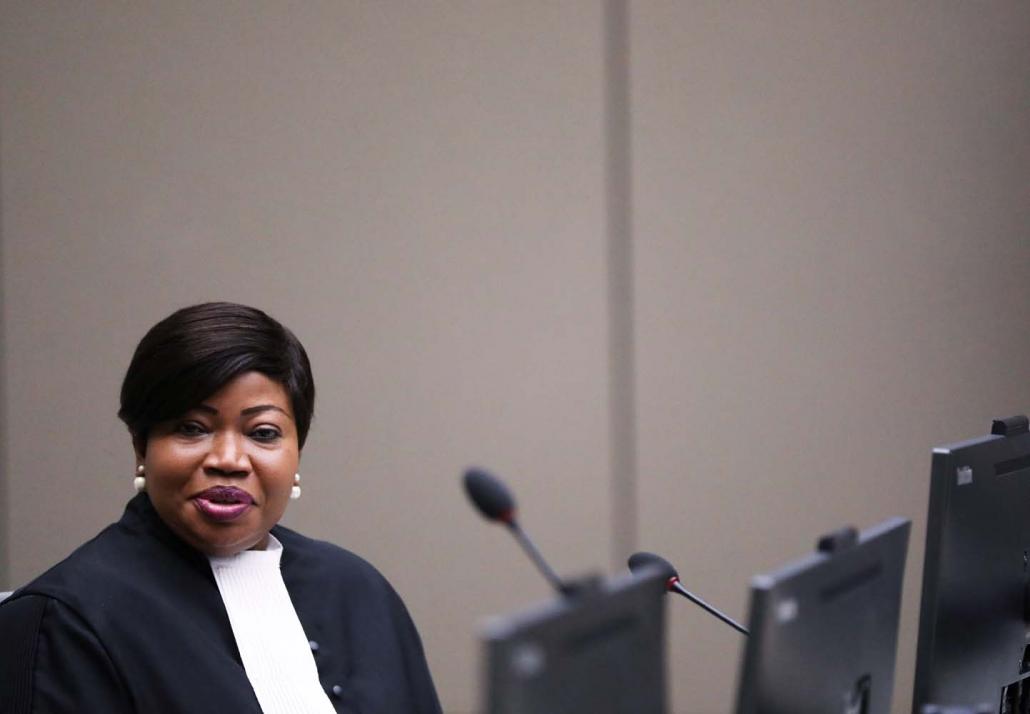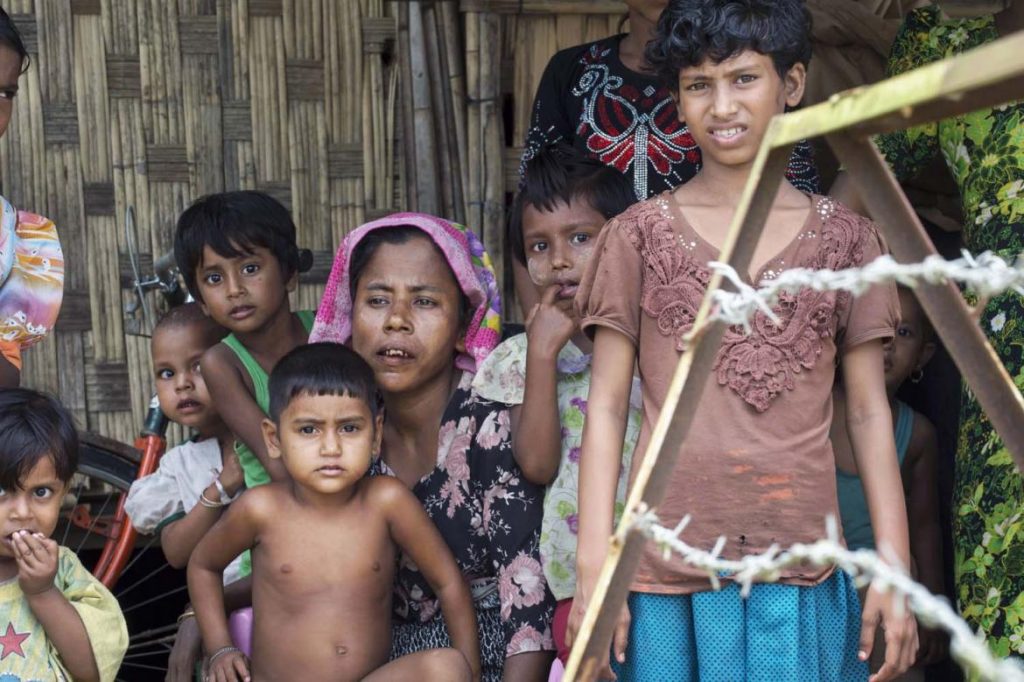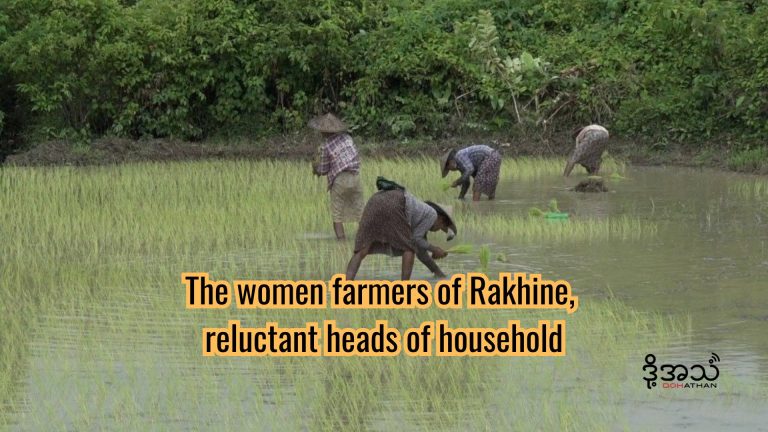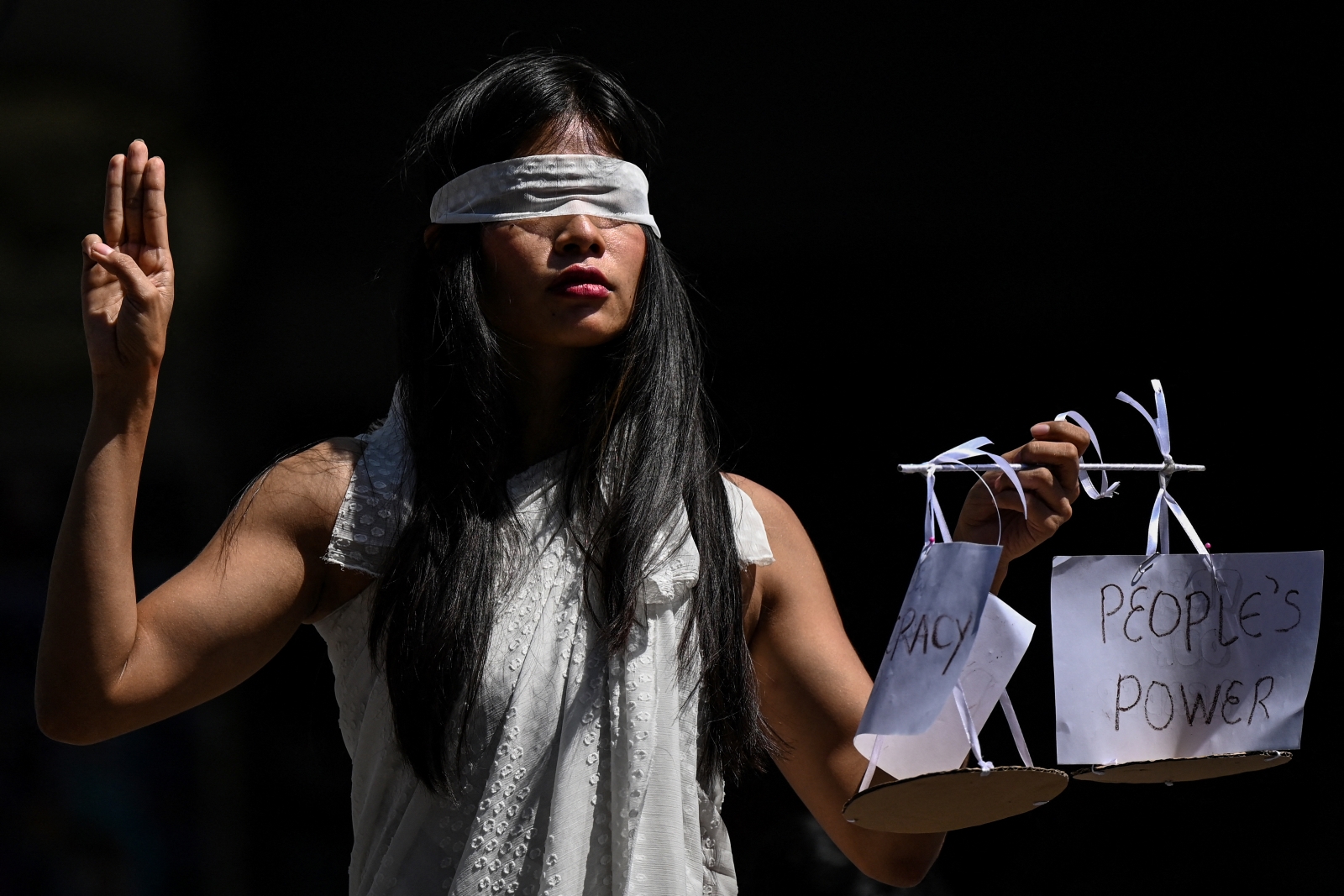The filing of cases against Myanmar and its leaders in The Hague and Argentina for their role in the Rohingya crisis will increase the pressure on Nay Pyi Taw. In the first of a two-part series, we explain how these cases emerged, what challenges they face and how Myanmar is likely to respond.
By THOMAS KEAN | FRONTIER
THE international push for accountability over alleged crimes committed against the Rohingya in Rakhine State – which potentially include genocide – has taken some important steps forward.
In the space of four days, three significant events took place: the filing of a case against Myanmar at the International Court of Justice on November 11, a filing in the Federal Court of Argentina under the principle of “universal jurisdiction” on November 13, and the International Criminal Court’s decision the next day to grant a prosecutor’s request for a full investigation into alleged crimes. Meanwhile, the Myanmar government-appointed Independent Commission of Enquiry is expected to visit Bangladesh to collect testimony and evidence in the next month.
Although the cases at the ICC, ICJ and in Argentina all revolve around the same event, they are quite different in nature, and could have differing outcomes and implications for Myanmar, its leaders, and the Rohingya community. Understanding how we got to this point, and where we might be heading, can be difficult. These cases are complex and many of the institutions involved have similar names, from the ICC and ICJ to the ICOE, IFFM, and IIMM.
If you haven’t been following developments closely, or find the whole process confusing, we’ve done the research, read the filings and spoken to the experts so that you can better understand the situation.
First there was the IFFM…
Support more independent journalism like this. Sign up to be a Frontier member.
Well before any of these complaints, applications and cases had been filed, the United Nations was already investigating Myanmar’s alleged rights abuses against the Rohingya.
The Human Rights Council established the Independent Fact-Finding Mission, or IFFM, in March 2017 to examine allegations of abuses committed since 2011, not only in Rakhine but also Kachin and Shan states. This was months before the events of late August 2017, when an Arakan Rohingya Salvation Army attack prompted a brutal Tatmadaw clearance operation that sent almost 750,000 Rohingya fleeing into Bangladesh.
The Myanmar government blocked the three-member team, led by Indonesian lawyer Mr Marzuki Darusman, from entering Myanmar, but it was still able to conduct 875 in-depth interviews with victims and witnesses, and draw on satellite imagery and authenticated documents, photographs and videos. Based on this evidence, the IFFM concluded in its full report of September 2018 that senior Myanmar military officials, including Senior General Min Aung Hlaing, should be investigated and prosecuted for genocide in northern Rakhine State, and crimes against humanity and war crimes in Kachin, Rakhine and Shan states. The IFFM called for those potentially responsible for the alleged crimes to be referred to the International Criminal Court.
Given the uncertainty over whether a case would proceed at either the ICC or an ad hoc tribunal, the IFFM called for the establishment of a body to preserve and analyse the evidence it had collected. In September 2018 the Human Rights Council voted to set up the Independent Investigative Mechanism for Myanmar. Shortly before the IFFM’s mandate ended in September this year, it handed over all its evidence to the IIMM. This new body, based in Geneva, became operational on August 30.
Like the IFFM, the mechanism’s mandate is not limited to recent events in Rakhine; it can collect, verify and analyse evidence of alleged abuses committed in any part of Myanmar since 2011, and it has no specified end date. It will be able to make any evidence available to national, regional or international courts or tribunals that have jurisdiction over the alleged crimes, whether that be the ICC or Argentina’s legal system.
As IIMM chair and international criminal law specialist Mr Nicholas Koumjian said in September, the mechanism is intended not just to help prosecute crimes that have already been committed, but also to prevent future violence against civilians. “It deters crimes by sending this message to all armed entities in Myanmar: ‘We are watching and will work to ensure that those who commit crimes will be brought to account,’” he said.
Although these accountability steps have been initiated in the Human Rights Council, they have been overwhelmingly endorsed in the UN General Assembly through resolutions on human rights in Myanmar, which have contained a specific clause welcoming the work of the IFFM and IIMM. The most recent of these resolutions was approved 140 to nine, with 32 countries abstaining, underlining Myanmar’s increasing isolation on the issue.
From November 9 to 14 Koumjian led the IIMM’s first mission to the region, meeting refugees, civil society and community leaders in Cox’s Bazar to explain the role of the mechanism and how they can engage with it. During the meetings he assured victims’ representatives that the privacy and security of witnesses would be given the highest priority. Given the uncertainty surrounding accountability efforts, international experts have cautioned of the need to manage survivors’ expectations and ensure they understand the different processes. This seems to have been a significant focus of the IIMM visit.
Koumjian brings a wealth of experience to the role. An international criminal law expert, he has served as international co-prosecutor at the Khmer Rouge Tribunal in Cambodia since 2013. Over the decades he’s also been involved in prosecuting war crimes and other serious crimes at tribunals on Yugoslavia, Bosnia and Herzegovina, Timor-Leste and Sierra Leone.
A creative solution at the ICC
Based in The Hague, the ICC prosecutes individuals responsible for a small number of offences: genocide, crimes against humanity, war crimes, and the crime of aggression. It’s often called the court of last resort, because it’s only supposed to take action when a national or regional authority is unable or unwilling to do so.
Prosecuting at the ICC those responsible for crimes in northern Rakhine initially seemed like an uphill battle. Myanmar is not a party to the Rome Statute (the 1998 treaty that led to the establishment of the ICC) so the court would only have jurisdiction if a case was referred to it by the UN Security Council. Myanmar’s close relationship with China and to a lesser extent, Russia, ensures this will not happen.
Game over, then? Not quite. In September 2018, pre-trial chamber judges approved a request from prosecutor Ms Fatou Bensouda to assert the court’s jurisdiction “if at least one element of a crime within the jurisdiction of the Court or part of such crime is committed on the territory of a State Party to the Statute”. Bangladesh has been a signatory to the Rome Statute since 2010. Game on – although there’s still a long way to go.
This creative solution opened the door for the court to consider prosecuting anyone deemed responsible for the crimes against humanity of deportation and persecution. In June, Bensouda requested permission from the court to begin a full investigation into events since October 2016, and the three judges granted permission on November 14. The investigation will not necessarily be limited to these crimes if enough evidence emerges.
The decision had been widely expected. Judges considered the gravity of the alleged offences (which is fairly well established) and the desire of the alleged victims (established by the large number of submissions from refugees in Bangladesh). They also re-examined the arguments over jurisdiction and whether there was enough evidence to justify an investigation before agreeing that Bensouda could proceed with a full investigation. The prosecutor is likely to consult evidence gathered by the IFFM that has been handed over to the IIMM, which should expedite the investigation. That said, there is no time limit to it.
If Bensouda finds sufficient evidence, she can request the judges to issue either summonses to appear or arrest warrants. It’s unlikely that Myanmar would hand over any suspects, given it has already rejected the ICC’s jurisdiction and refused to engage with the process – a position that is unlikely to change any time soon.
The enforcement of warrants has been a common problem for the ICC since its establishment, but if it does issue some for individuals in Myanmar then it will place further pressure on the government and severely limit the ability of those named to travel internationally. Beyond that, it’s important to note that the future is unpredictable, and there’s no statute of limitations on crimes under the Rome Statute.

International Criminal Court prosecutor Ms Fatou Bensouda. (AFP)
At ICJ, Myanmar to take a different approach
Although the ICC examines personal responsibility, a new case at the ICJ in The Hague will focus on the issue of state responsibility and whether Myanmar has committed or failed to prevent genocide in northern Rakhine.
The case revolves around the Genocide Convention. When Myanmar became a party to the convention in 1956, it pledged to “prevent and punish” genocide (and by extension not commit it). Under article nine, if one state party believes another state party has failed to uphold the terms of the convention, it can bring a case against it in the ICJ, which is a court established by the UN.
When signing the convention, Myanmar made a reservation about article three – the prosecution of individuals responsible for genocide in an international court. However, it made no reservation about article nine, opening the door for another state party to the convention to bring a case.
Enter The Gambia, one of West Africa’s smallest nations. It has filed an application to begin proceedings against Myanmar on behalf of the Organisation of Islamic Cooperation, a bloc of 57 Muslim majority nations, accusing Myanmar of acts “intended to destroy the Rohingya group in whole or in part”, such as killing, causing serious bodily and mental harm, inflicting conditions that are calculated to bring about physical destruction, imposing measures to prevent births, and forcible transfers.
Although it’s getting much attention now, the suit hasn’t come out of nowhere. As far back as May 2018 the OIC said that it believed Myanmar’s actions in northern Rakhine amounted to a “serious and blatant violation of international law” and formed a high-level committee led by Gambia to examine the issue. In March of this year the committee agreed to submit the case to the ICJ. Leading Gambia’s case is Mr Abubacarr Tambadou, the country’s attorney general and justice minister, who was previously involved in the United Nations International Criminal Tribunal for Rwanda.
In its application to the court, Gambia asks the ICJ to adjudge and declare that Myanmar has breached and continues to the breach the convention, that it must cease these acts and respect its obligations under the convention, that it punish persons who have committed genocide, and that it offers assurances that the violations of the convention will not be repeated. But it also seeks reparations: namely, allowing the safe and dignified return of Rohingya refugees, respect for their full citizenship and human rights, and their protection from discrimination and persecution.
Unlike the ICC case, Myanmar has indicated it will respond to the allegations. This likely reflects the fact it is a state party to the Genocide Convention but is not a party to the Rome Statute. Refusing to respond on jurisdiction grounds would not be a wise strategy.
Myanmar’s permanent representative to the United Nations, U Hau Do San, told 7Day Daily that Myanmar would defend itself “through legal channels so they know we are not committing” genocide. He referred to the signing of a bilateral agreement with Bangladesh to repatriate Rohingya refugees as evidence. “If Myanmar committed genocide, we wouldn’t try to repatriate those who fled to the neighbouring country,” he was quoted as saying.
He also rejected the accusation that Rohingya who remain in Rakhine were at risk of genocide, saying that international observers, including UN, who had visited Myanmar knew that Rohingya in northern Rakhine were not under threat.
Myanmar will face formidable opposition. Gambia has hired Boston-based law firm Foley Hoag to lead its legal team, and two prominent international lawyers and human rights experts have also reportedly joined the case: Professor Philippe Sands of University College London and Professor Payam Akhavan of McGill University in Montreal.
Provisional measures: stopping ‘genocidal acts’
An important feature of the filing is that it asks the court “as a matter of extreme urgency” to issue provisional measures to stop Myanmar’s “genocidal conduct” against the estimated 600,000 Rohingya who remain in northern Rakhine. It draws on the findings of the IFFM, which warned in September that “there is a serious risk that genocidal actions may occur or recur”, and asks the court to ensure “the fullest possible protection for those who remain at grave risk from future acts of genocide”.
Gambia’s proposed provisional measures include for Myanmar to prevent all acts that amount to or contribute to genocide – not only extrajudicial killings and sexual violence, but also the burning of homes and villages and the deprivation of food and other necessities among other things. It also requests that the court order Myanmar to not destroy or render inaccessible any evidence related to the case, including human remains or physical locations where alleged genocidal acts have occurred.
If the court issues the provisional measures, Gambia proposes that both countries be required to report back to the court in four months on measures being taken to implement them. The court is expected to hold oral hearings on this request in December, according to Foley Hoag.
The filing is unique in that it’s the first time a party to the Genocide Convention has brought a case to the ICJ against another state party when it has not been directly affected by its actions. (The only two previous cases both involved Serbia, and were brought by Bosnia and Croatia – in the latter, Serbia countersued.)
However, there has been a similar case before the court regarding a different convention. In 2009, Belgium filed an application against Senegal to the ICJ alleging that it had violated the Torture Convention by failing to either prosecute or extradite the former dictator of Chad, Hissène Habré. In 2012 the court ruled in favour of Belgium, but also upheld the principle that state parties to the convention had a “common interest” to ensure it was not violated without impunity.
Gambia argues that the convention establishes a responsibility for all parties to punish genocide, so its legal duties are affected by Myanmar’s actions. Gambia specifically cited the Belgium-Senegal ruling and argued that it also applied to the Genocide Convention.
How is Gambia’s application likely to proceed? Given the apparent urgency of the situation, a decision on the provisional measures could be made within weeks – in the case of Bosnia and Serbia, such a ruling was made in three weeks. The full case though could take years to conclude.
All ICJ judgments are final, with no option of appeal. If one state believes that another state has failed to adhere to a ruling, it can refer the matter to the UN Security Council. The council can then take measures against the offending party to coerce it to implement the terms of the judgement.
Of course, China and Russia are once again likely to be a stumbling block in the Security Council. But a finding that genocide took place in Rakhine State would still be incredibly damaging for Myanmar, and thus serve as an important deterrent to other countries.
In the next edition of Frontier we’ll examine the Argentina filing and the issue of “universal jurisdiction”, as well as the status of Myanmar’s own investigation into events in northern Rakhine.







